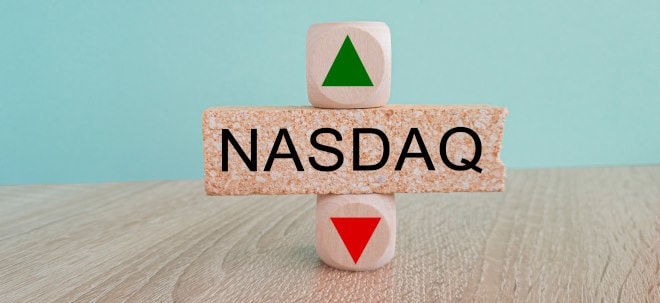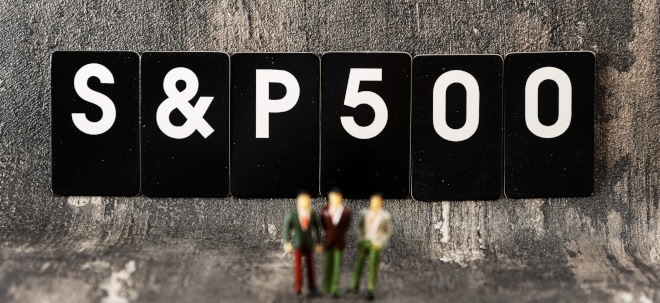Das für Ende des Jahres erwartete Urteil zu Lipitor (Klage der indischen Pharma-Firma Ranbaxy gegen das Pfizer-Patent) hängt wie ein Damoklesschwert über Pfizer. Wird die Klage abgewiesen, könnten Pfizer nach Analystenschätzung schnell auf 33 Dollar steigen; wird der Klage hingegen stattgegeben, droht ein Einbruch auf 21 Dollar (oder tiefer).
Einerseits reizt es mich, zu kaufen, denn die Chancen für einen Ranbaxy-Sieg sind klein: Es müssten gleich zwei Patente gekippt werden. Bei dem einen stehen die Chancen dafür 9 zu 1, bei dem anderen 8 zu 1 (siehe unten, fett). Kombiniert ist die Chance also denkbar klein. Auch ist Pfizer mit 25 Dollar sicherlich schon recht billig (eher am unteren Ende der obigen Spanne). Aber der seit Wochen stetig gefallende Chart lässt keinerlei Boden erkennen. Man wird ihn auch schwer abpassen können. Denn am Tag der Entscheidung gibt es - soviel ist sicher - einen massiven Sprung. Ob nach oben oder unten, bleibt die 1-Million-Dollar-Frage.
------------------------------------------
Investors biting nails over Lipitor
Analysts bullish on Pfizer's chances of winning patent battle, but stakes are high.
August 2, 2005: 3:50 PM EDT
By Aaron Smith, CNN/Money staff writer
NEW YORK (CNN/Money) - Investors are biting their nails over Pfizer's future with Lipitor, which could become an unprecedented $14 billion blockbuster by 2007, or could take an $8 billion hit to sales, depending on the outcome of its patent litigation cases.
Deutsche Bank analyst Barbara Ryan told CNN/Money that she thinks Pfizer has an 80 percent chance of winning its patent fights, but that investors are betting much more cautiously.
"Investors don't want to make the bet because it's too hard to call," said Ryan.
Based on projected earnings, Ryan calculates a victory for Pfizer could send its stock price up to $33 a share, while a loss could send it dropping to $21. She says investors, pricing the stock at $27, midway between her two targets, are effectively betting as if the company faces 50/50 odds.
Pfizer, the world's biggest drug company is waiting for verdicts in multiple court battles with Indian generic drug maker Ranbaxy Laboratories (Research) . It's a classic David versus Goliath scenario -- Pfizer's revenues are about 50 times the size of its diminutive challenger. The challenges to the Lipitor patents are being waged in a U.S. district court in Delaware as well as a British court. The trial phases in both of these cases have come to a close, and the companies are awaiting judges' rulings, which could come by the end of the year.
Pfizer holds at least two patents for Lipitor, which are scheduled to expire in 2010 and 2011. Bernstein analyst Richard Evans favored Pfizer over Ranbaxy 80/20 in defending the later patent, and favored Pfizer with 90/10 odds in defending the earlier patent.
"To get generic Lipitor on the market, [Ranbaxy] has to defeat them both," said Evans. "It's a long shot."
These projected odds contrast with the industry average, according to the Generic Pharmaceutical Association, which said that generic companies win patent litigation fights 75 percent of the time. The GPA was not immediately available to provide an estimate for the Pfizer-Ranbaxy battles.
The court battles carry massive implications for the world's biggest drug maker and the world's top-selling drug.
Lipitor, which is designed to lower cholesterol, totaled $10.8 billion in 2004 sales, the first drug ever to surpass $10 billion. Deutsche Bank projects Lipitor sales will grow to $14.2 billion in 2007 if Pfizer successfully holds its patents, translating into annual earnings of $2.54 per share. But if Pfizer loses, it could face a $8.6 billion plunge in annual sales by 2007, most of it in U.S. revenue, resulting in annual earnings of $1.64 per share, according to Deutsche Bank. Bernstein's projections for Pfizer are similar.
If Ranbaxy succeeds in proving the patents invalid, it could have a generic version of the drug on the market as early as 2007, said Deutsche Bank analyst Manish Jain in a Tuesday conference call. Jain said that Ranbaxy faces a 25 percent downside to its stock price if it fails in its patent fight, but in a show of confidence the company's founding family recently fattened its Ranbaxy holdings to 4 percent.
Lipitor's name-brand competitors, such as Crestor and Vytorin, would also suffer declining sales as patients switch to cheaper generics, and the drugmakers' stocks would sell off 3 to 4 percent, said Deutsche Bank analyst Mark Purcell.
Crestor, an aspiring blockbuster from AstraZeneca (up $0.27 to $45.30, Research), made $908 million in 2004. Another competitor entered the market last summer: Vytorin, a combination of Zetia, a Schering-Plough (up $0.20 to $21.16, Research) drug that stops cholesterol absorption into the liver and intestine, and Merck (down $0.09 to $30.59, Research)'s Zocor.
Despite its reputation as a no-settlement company, Pfizer could try to settle with Ranbaxy outside of court for as much as $2 billion, said Ryan, staving off heavier damages in the event of patent losses.
"Pfizer clearly is a company with tremendous disregard for the generic drug industry and is not given to settling," said Ryan. "But it is not altogether unlikely that Pfizer could settle its litigation. If Pfizer could translate some of its cash hoards into greater certainty on this litigation ... I think they would do that."
Manish said that Pfizer's other option, attempting to acquire Ranbaxy, is unlikely, because the drug giant would rather settle or take its chance in court than pay Ranbaxy's estimated $4 billion price tag.
Pfizer spokeswoman Vanessa Aristide would not respond to analyst projections. "This is all speculative thinking and we just don't comment all that," said Aristide.
Evans does not own stock in these companies but Bernstein conducted business with at least one of them in the last year. |


 Thread abonnieren
Thread abonnieren

